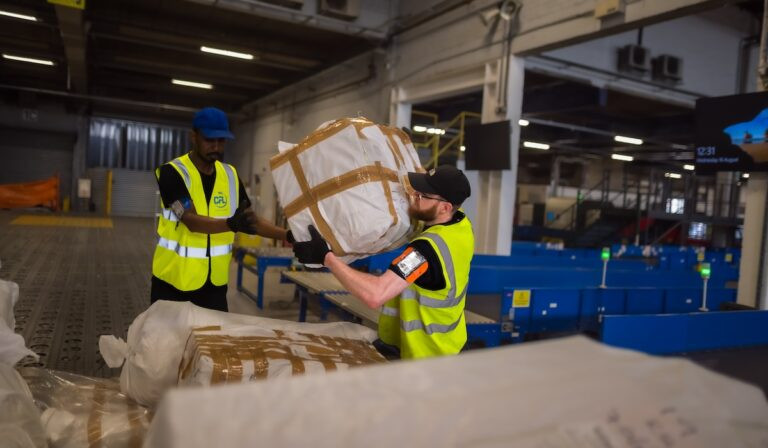The disruption to Red Sea shipping routes as a result of the ongoing crisis in the Middle East has created higher demand for airborne general cargo, but the impact on express and courier services is harder to determine.
General cargo typically experiences longer delays when volumes increase, so express and courier services can be an expedient, short-term solution. However, as margins are generally tighter in this sector, it can be harder to push up prices, indeed unsustainable in the long run.
Meanwhile, high demand for goods from India has helped e-commerce activity continue to grow, adding to the overall increase of express and courier shipments into the UK. This makes it harder to understand the real impact of the disruption on the express and courier sectors.
Express and courier have been key drivers of this e-commerce growth into the UK from India, and smaller couriers have played a big part in meeting this demand and driving this growth. They operate in an ultra-competitive price environment, competing with FedEx, UPS and DHL, so they are not subject to the same price fluctuations for the airfreight linehaul rate.
The current volatility means there is a risk of smaller couriers being priced out of the market, and what would be high-value volume for airlines in the long term is lost to short-term profit chasing. This is why airlines should try, where possible, to view couriers through a longer lens, not see them as a fluctuating-price commodity like general cargo.
Depending on the airline, general cargo represents between 70-90 percent of all cargo shipments.
It offers the lowest rates, largely because there is less time sensitivity and goods are shipped in bulk, so increases in demand normally impact general cargo first.
Courier and express services can attract higher prices for expedited delivery and guaranteed delivery times. Shippers pay a premium, compared to general cargo shipments, for speed and reliability. For most airlines, this will be 20-50 percent higher than general cargo.
However, the sector has seen continued growth, partly due to the rapid rate of economic development in India, which is contributing to demand for time-critical, trusted services in Europe, a trend that predates the Red Sea crisis. The Indian economy is increasingly the key driver in South Asia of express volume growth.
One of the main reasons for this in the UK is that we have the highest population of students from the sub-continent, a significant factor in the increasing levels of e-commerce demand.
However, the key to maintaining growth and stability in this rapidly developing trade lane is keeping rates under control so they don’t choke that demand.
e-commerce products are transported by a variety of airfreight services: general cargo, courier, express, and air mail.
On the India to UK route, couriers are using courier connections to offer services that can compete with or beat the traditional integrators for speed and service. This is because they benefit from expedited handling and clearance on arrival in the UK, which enables them to offer the fastest delivery times from India. Being able to do this while offering stable, competitive pricing to their customers is essential. Airlines that can offer this will benefit as this volume is likely to grow significantly over the rest of this decade.
According to the Department for Business and Trade, total UK imports from India amounted to £22.3 billion in the four quarters to the end of Q2 2023, an increase of almost 24 percent compared to the same four quarters last year. However, the increase for couriers in the same period was 40 percent.
Opening new gateways into the UK to facilitate courier and express shipments may be key for providing capacity to other airports for the growing Indian courier and express community.
With global uncertainty likely to continue for the foreseeable future, it is incumbent upon the international logistics industry to maintain stability and ensure the continued flow of goods across the globe. Underpinning this is the need for flexibility and the necessity to hold prices at such a level that they don’t cause a drop in demand.
Whilst general cargo can sustain such price increases in the short-term, in express and courier wider price sensitivity means there is a limit beyond which it simply cannot go.
As key players in the vast, complex delivery chains that support the continuing surge in global e-commerce demand, we feel a responsibility to be the custodians of price maintenance, helping to maintain order in the networks upon which we all, individuals and businesses, rely.





